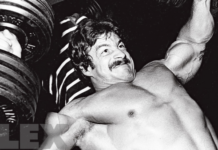Many of us have at least the occasional drinking nights and sometimes the rare extreme drinking nights, but we hardly think about how it might affect us fitness-wise.
Contents
1- Alcohol affects you physiologically by dehydration.
Since alcohol is a diuretic, the more you drink, the more you urinate, the more you are dehydrated. In worse case scenarios, excessive drinking can lead to severe dehydration and electrolyte imbalance.
Alcohol draws out water from your muscle cell like kind of like the opposite of creatine (creatine drills water in well alcohol pulls it out)
Of course, with dehydration and a hangover, you will feel increases in fatigue, sluggishness, confusion, and your chances of going to the gym plummets to a near zero.
2- It decreases hormones production (testosterone, leptin)
Studies show alcohol consumption, about 40 grams or so, or 1 drink, has really no effect on the muscle growth promoting hormone testosterone.
However, that starts changing as you continue to drink more.
10 to 16 hours after consuming 3 drinks, shown to reduce testosterone levels in your body by 23%. This drop does not come back to normal levels until 36 hours later.
That’s a whole 1 and a half day you are spending with subpar muscle protein synthesis, it means your body has a pretty poor recovery.
And even worse, alcohol has been connected to decreasing leucine oxidation, which is also important for building muscle.
Moreover, it doesn’t stop there for your hormones. Moderate amounts of alcohol has shown to inhibit the hormone leptin, which is responsible for making you feel full
4 -It makes “fat loss” harder
If you are trying to lose weight, good luck battling those cravings for nachos after a long night of drinking.
Speaking of losing weight or even just losing body fat, alcohol will also affect how your body uses energy.
Typically, your body uses glucose and fat as energy through the glycolytic and oxidative pathway; but once you introduce alcohol, your body quickly shifts its focus from glucose and fat to braking down alcohol for energy instead.
Alcohol itself contains 7 calories per gram, which your body breaks down into acetaldehyde and then into acetic acid and then finally to a useable energy source known as acetyl CoA. While this process takes place, your body won’t be utilizing any other energy sources in your body, which means all the calories you consume while intoxicated will be converted into stored fat and any chances of burning fat for the duration is not going to happen.
4-Alcohol lowers the quality of sleep.
After a night of drinking, studies show that when you go to bed, you do in fact fall asleep quicker and into deeper sleep, but it’s quickly disrupted and REM sleep (the deepest of all the sleep stages) is overall reduced.
When you are asleep, much of the mechanisms for muscle synthesis and recovery takes place; disrupt that, and you disrupt your muscle growth.
So if you have a fitness goal that you are desperately trying to reach, alcohol consumption is perhaps one of your worst enemies.
But if you do to choose to drink, drink moderately and choose healthier, low calorie choices.

![Don’t Start Weighted Calisthenics Until You Read This [Ultimate Guide] weighted calisthenics guide](https://chimerabody.com/wp-content/uploads/2018/09/weighted-calisthenics-guide.jpeg)




